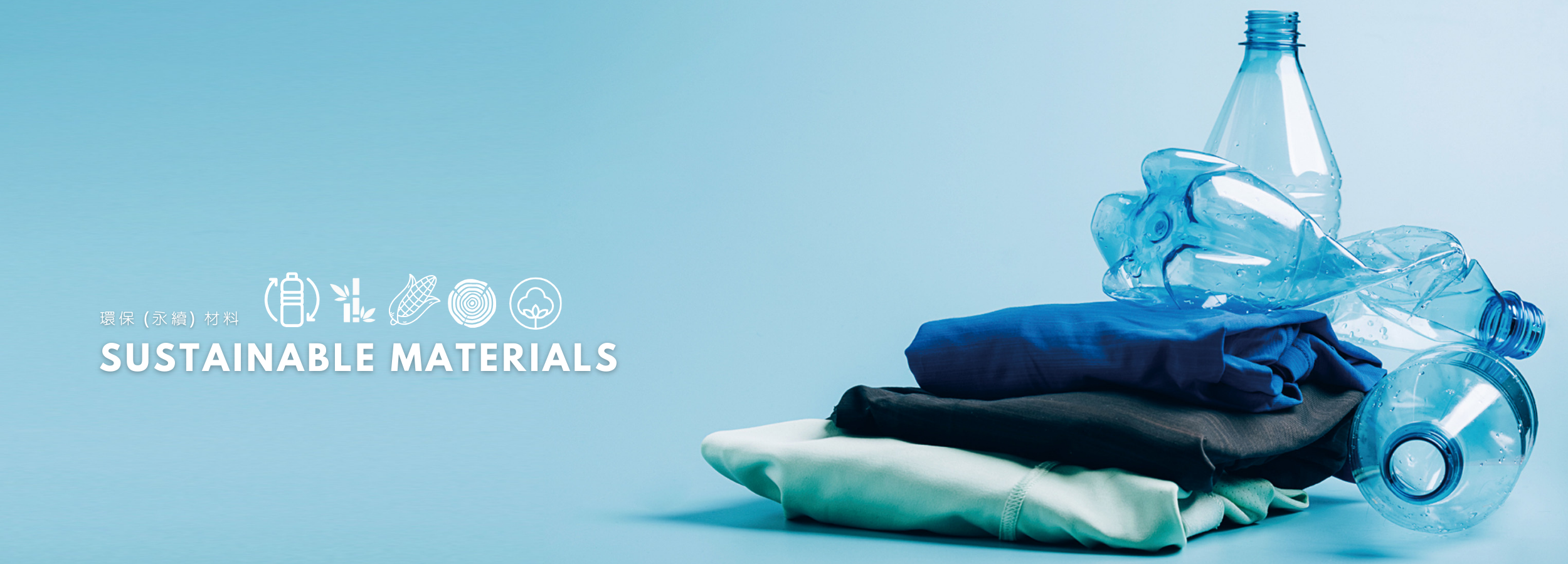
Sustainable Materials Benefits
Sustainability and Waste Reduction
Energy and Water Efficiency
Durability and Versatility
Economic and Environmental Benefits
Promotion of a Recycling Culture
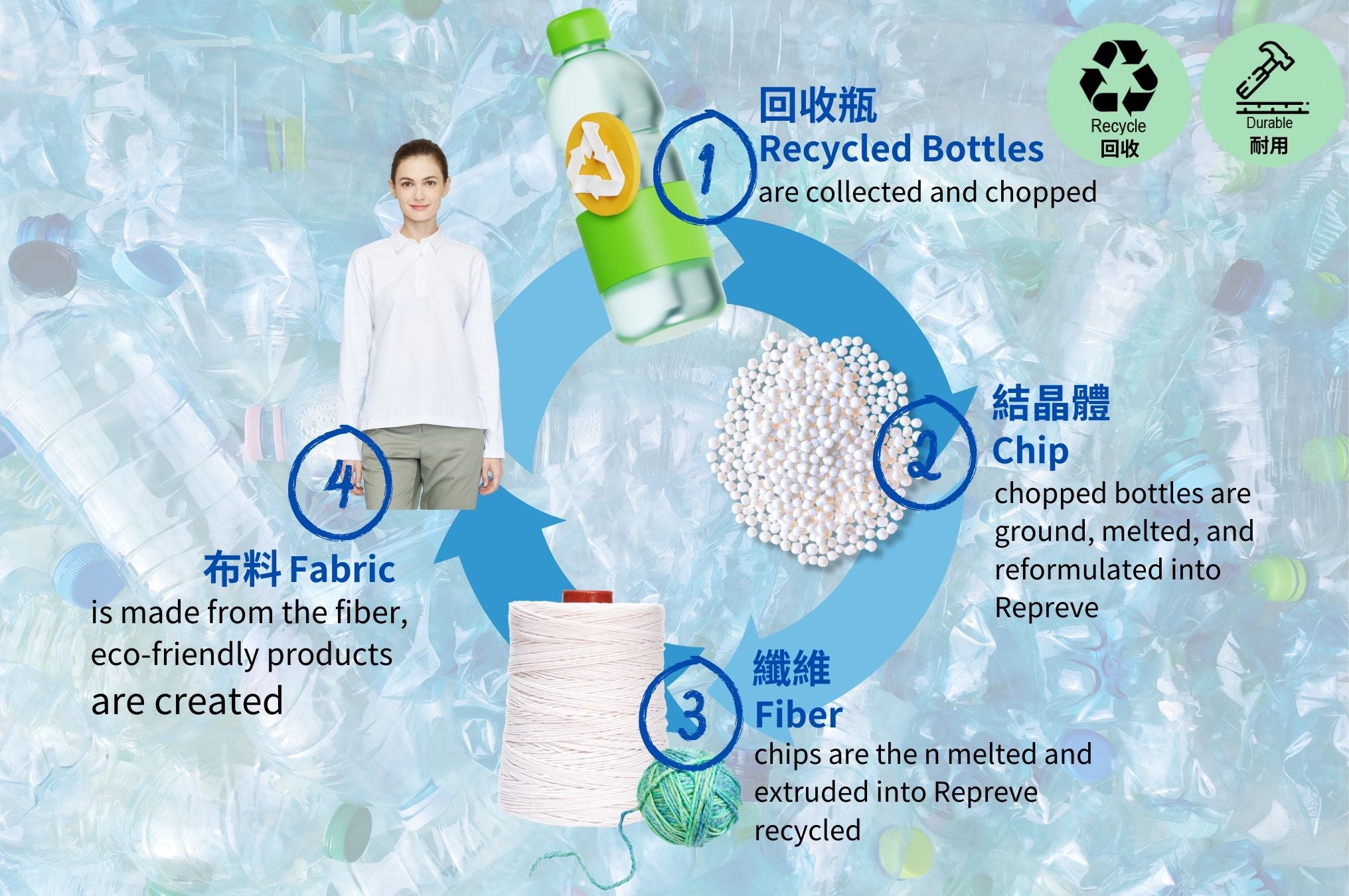
Recycled Polyester
Recycled polyester fabric is an eco-friendly and cost-effective alternative to traditional polyester fabric, made from recycled plastic bottles and post-consumer plastic waste. Using recycled plastic bottles to make fabric reduces the amount of plastic waste in landfills and oceans, and also reduces the need for new petroleum-based products.
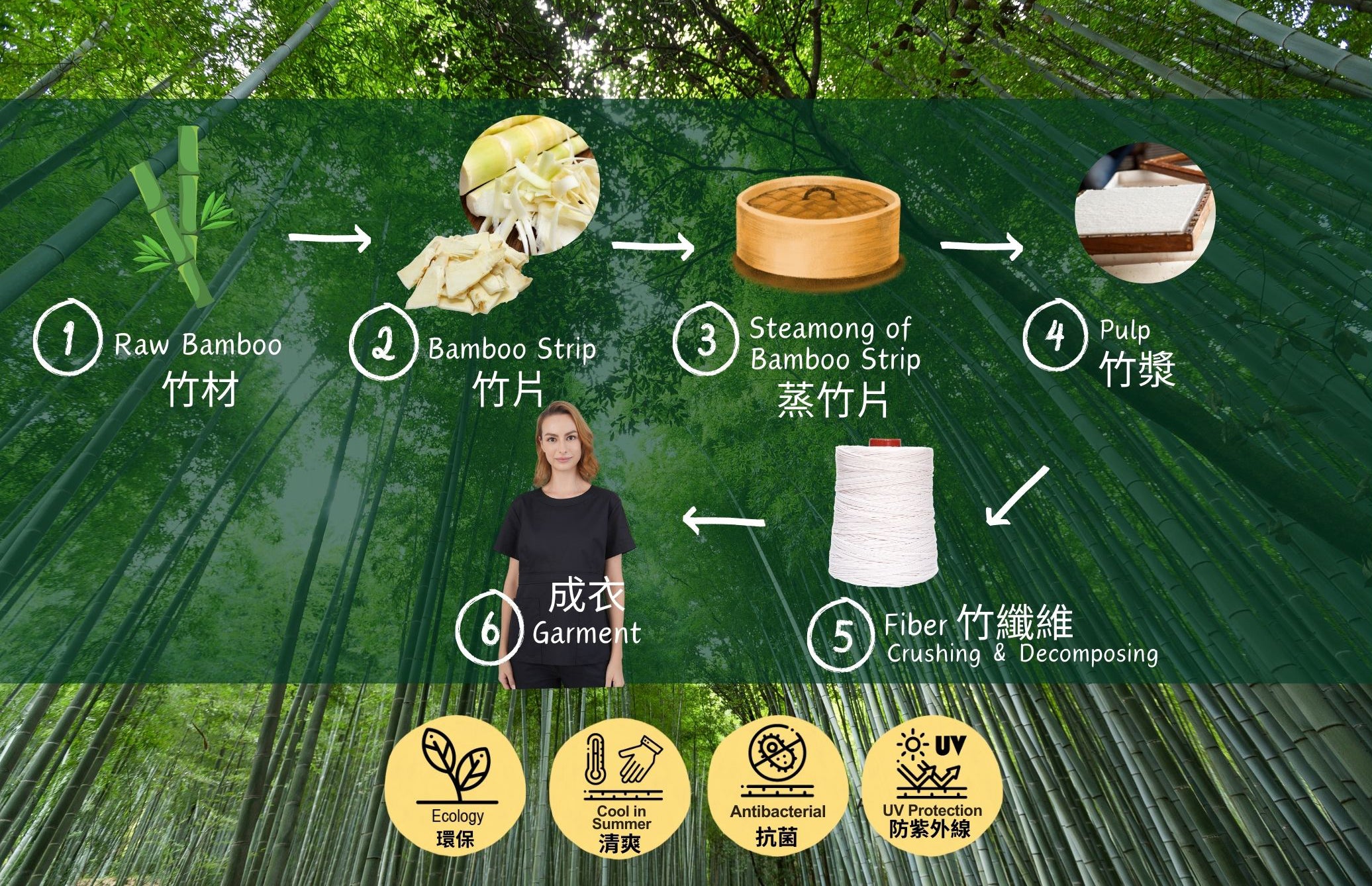
Bamboo
Bamboo fiber fabric is a natural textile that is made from the pulp of bamboo grass and is known for its softness, breathability, and moisture-wicking properties. It is also hypoallergenic, UV protection and naturally antimicrobial, making it a popular choice for clothing. Additionally, bamboo fiber is eco-friendly, as bamboo is a renewable and fast-growing resource that requires fewer resources to grow compared to other crops.
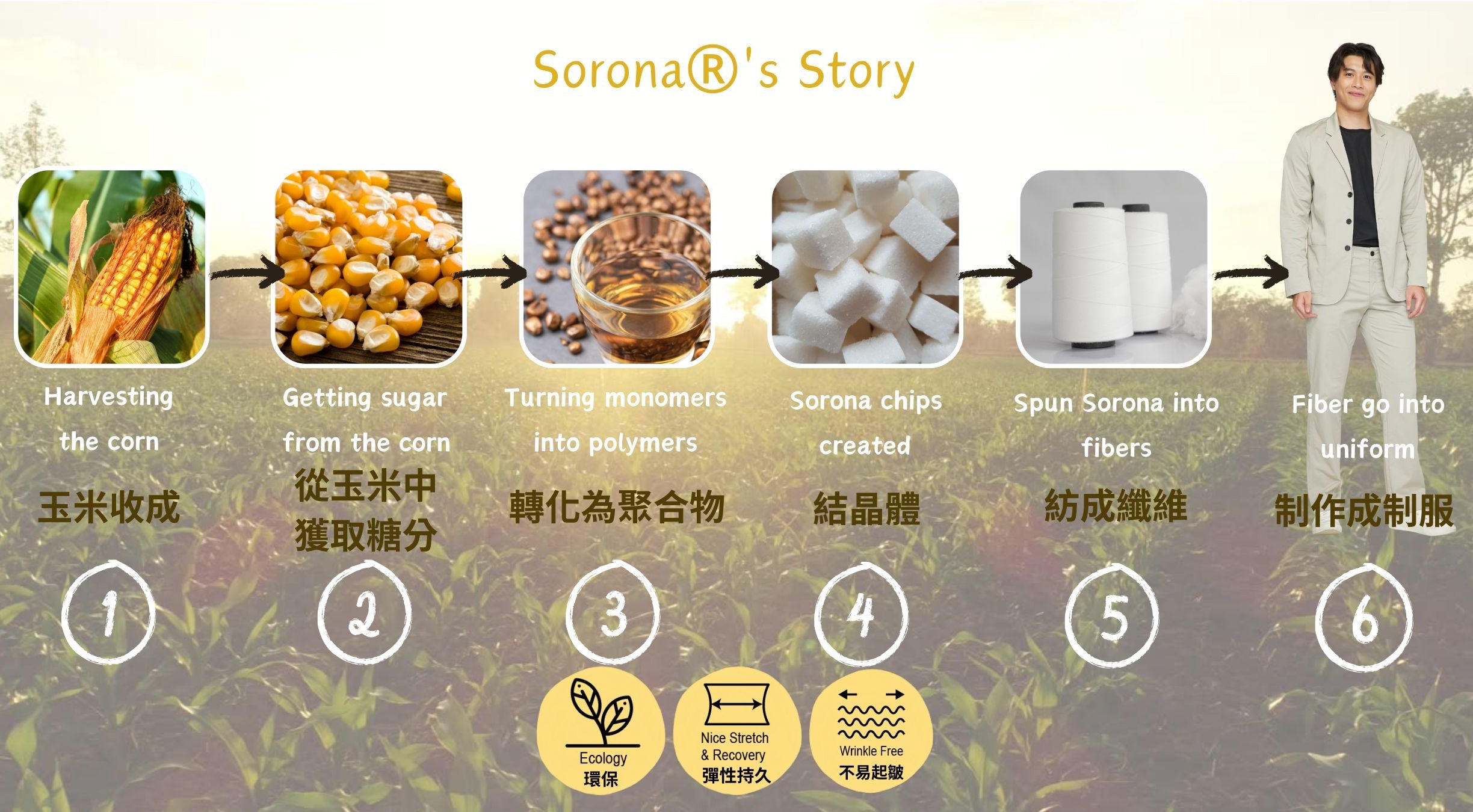
Sorona®
Sorona is a type of polymer derived from renewable plant-based ingredients, primarily corn. The production process of Sorona consumes less energy and produces fewer greenhouse gas emissions than the production of traditional petroleum-based polymers. This innovative fabric is superior comfort, flexibility, and freedom of movement. Sorona Agile fabric also has excellent shape retention and is resistant to fading, pilling, and wrinkling, making it a durable and long-lasting choice for clothing.
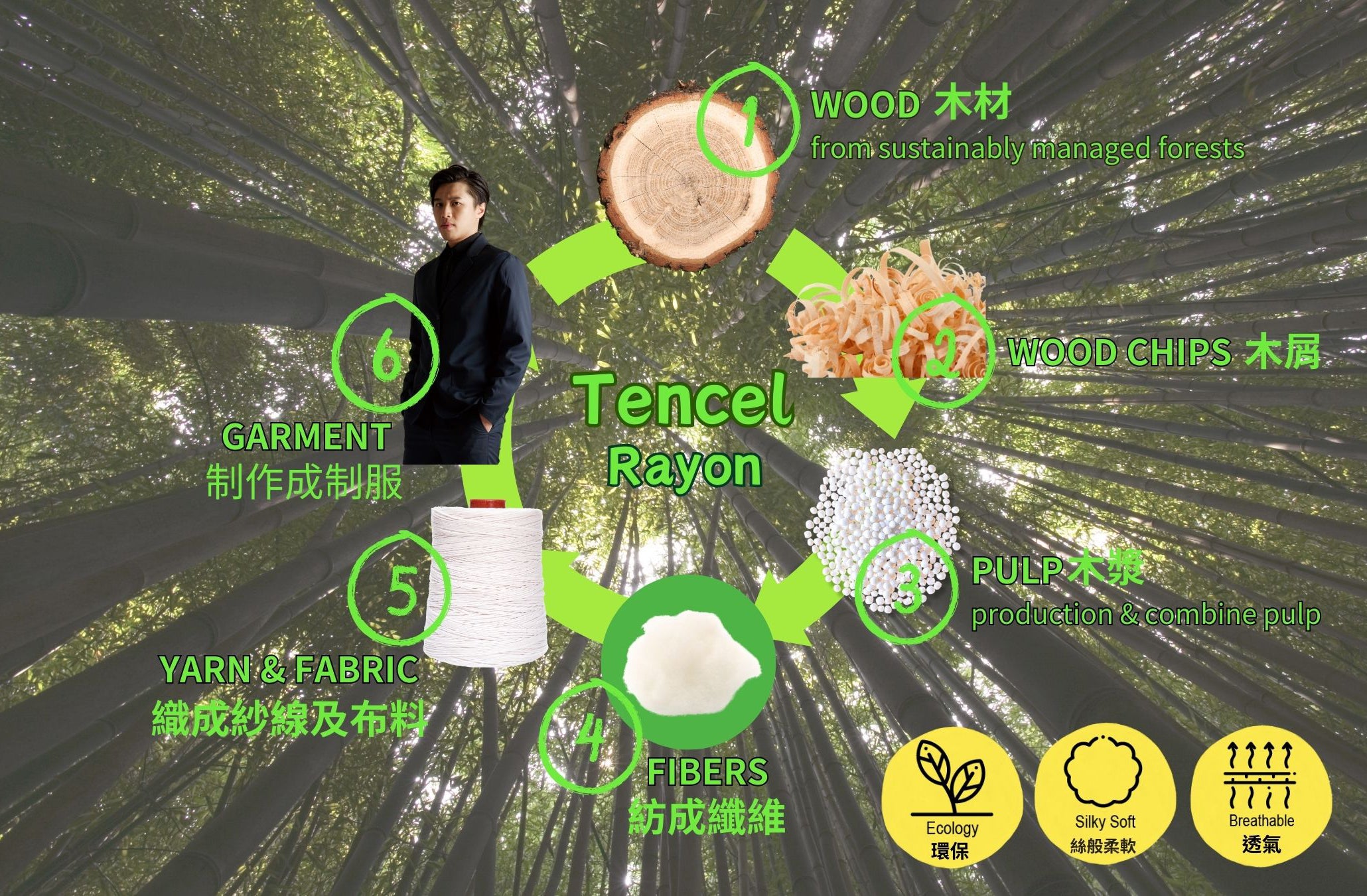
Lyocell/ Tencel™
Lyocell is a type of fabric made from the wood pulp of eucalyptus trees and is known for its softness, breathability, and moisture-wicking properties. It is also environmentally friendly, as the production process uses a closed-loop system that recycles water and solvents, and does not release harmful chemicals into the environment. Additionally, lyocell is biodegradable and can be composted, making it a sustainable choice for clothing and other textiles.
